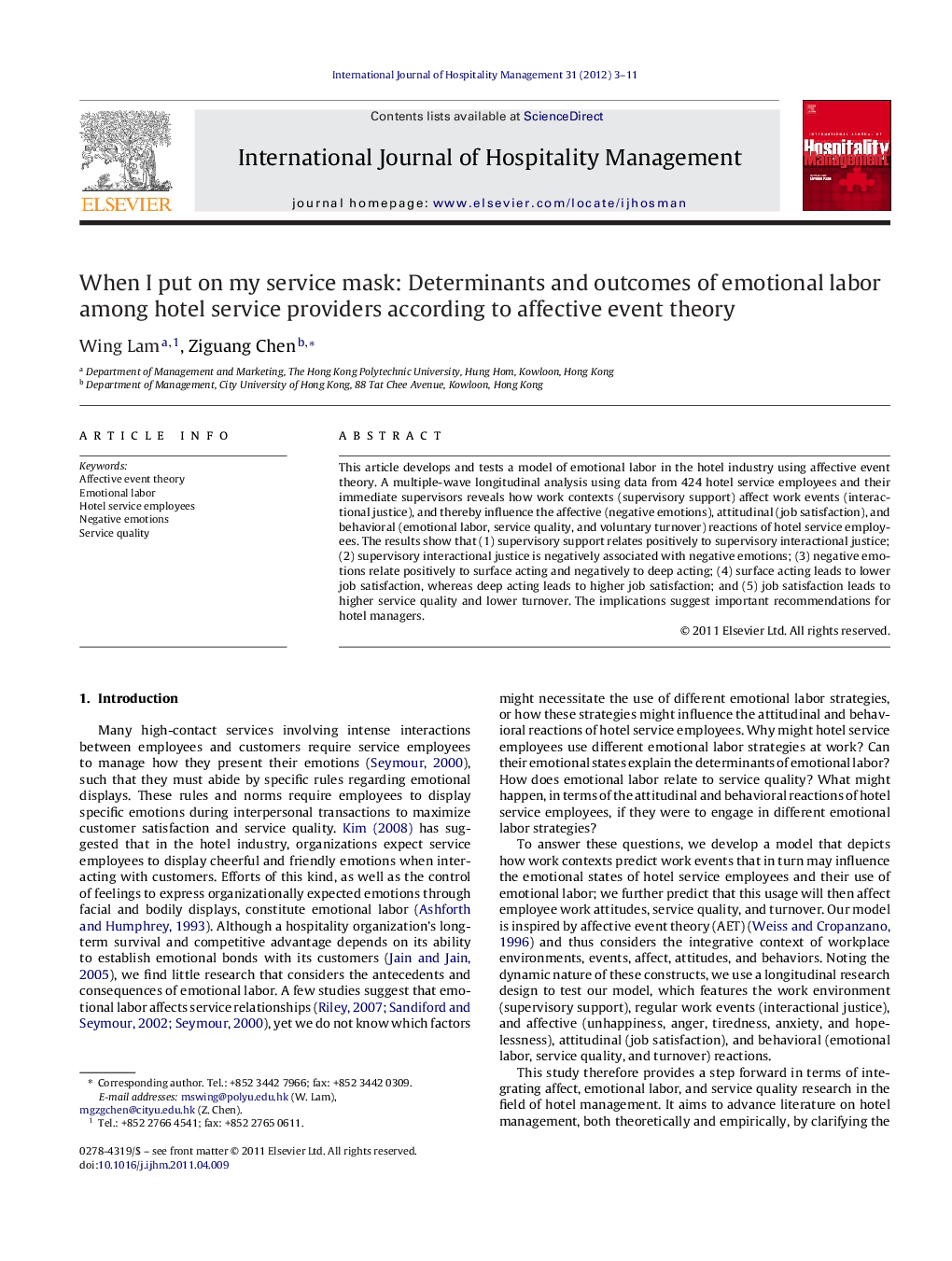| Article ID | Journal | Published Year | Pages | File Type |
|---|---|---|---|---|
| 1009686 | International Journal of Hospitality Management | 2012 | 9 Pages |
This article develops and tests a model of emotional labor in the hotel industry using affective event theory. A multiple-wave longitudinal analysis using data from 424 hotel service employees and their immediate supervisors reveals how work contexts (supervisory support) affect work events (interactional justice), and thereby influence the affective (negative emotions), attitudinal (job satisfaction), and behavioral (emotional labor, service quality, and voluntary turnover) reactions of hotel service employees. The results show that (1) supervisory support relates positively to supervisory interactional justice; (2) supervisory interactional justice is negatively associated with negative emotions; (3) negative emotions relate positively to surface acting and negatively to deep acting; (4) surface acting leads to lower job satisfaction, whereas deep acting leads to higher job satisfaction; and (5) job satisfaction leads to higher service quality and lower turnover. The implications suggest important recommendations for hotel managers.
► We develop and test a model of emotional labor in the hotel industry using AET. ► Support leads to higher interactional justice which leads to lower negative emotions. ► Negative emotions leads to higher surface acting (SA) and lower deep acting (DA). ► SA leads to lower job satisfaction, whereas DA leads to higher job satisfaction. ► Job satisfaction leads to higher service quality and lower turnover.
